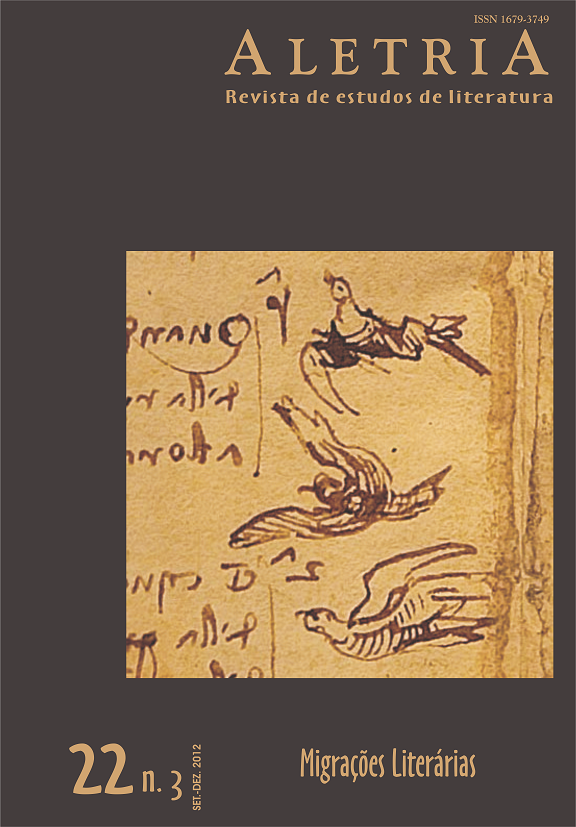The Process of Literary Creation Across Cultural Borders: A Reading of Rohinton Mistry’s “Swimming Lessons”
DOI:
https://doi.org/10.17851/2317-2096.22.3.205-213Palabras clave:
literary creation, cultural dislocation, cultural identityResumen
The aim of this paper is to consider the process of literary creation as recreated by the Indian author Rohinton Mistry in his short story “Swimming lessons.” The dislocation of the main character from India to Canada allows him to turn his memories into fictional material and cross cultural borders. Literature is thus turned into a space of reflection which allows him to makes sense of his own experience in the diaspora.
Descargas
Citas
ASHCROFT, Bill et al. The empire writes back. London: Routledge, 1989.
BOEHMER, Elleke. Colonial and postcolonial literature. Migrant metaphors. Oxford University Press, 2005
FRASER, Robert. Lifting the sentence. A poetics of postcolonial fiction. Manchester: Manchester University Press, 2000.
FROW, John. Genre. London: Routledge, 2006.
GHOSH, Bishnupriya. When borne across. New Brunswick/New Jersey/London: Rutgers U. Press, 2004.
MIGNOLO, Walter. Beyond dichotomies: translation/transculturation and the colonial difference. Available at: http://www.uni-leipzig.de/~ethno/papermignolo.html. Accessed at: 28 Aug. 2002.
MISTRY, Rohinton. Swimming lessons. In: MISTRY, Rohinton. Swimming lessons and other stories from Firozsha Baag. New York: Vintage International, 1996. p. 229-250.
Descargas
Publicado
Cómo citar
Número
Sección
Licencia
Derechos de autor 2012 Cielo Griselda Festino (Autor)

Esta obra está bajo una licencia internacional Creative Commons Atribución 4.0.
Authors who publish with this journal agree to the following terms:Authors retain copyright and grant the journal right of first publication with the work simultaneously licensed under a Creative Commons Attribution Non-Commercial No Derivatives License that allows others to share the work with an acknowledgement of the work's authorship and initial publication in this journal.Authors are able to enter into separate, additional contractual arrangements for the non-exclusive distribution of the journal's published version of the work (e.g., post it to an institutional repository or publish it in a book), with an acknowledgement of its initial publication in this journal.Authors are permitted and encouraged to post their work online (e.g., in institutional repositories or on their website) prior to and during the submission process, as it can lead to productive exchanges, as well as earlier and greater citation of published work (See The Effect of Open Access).





